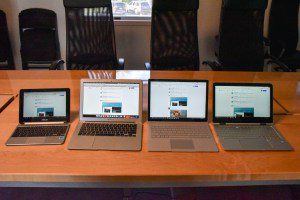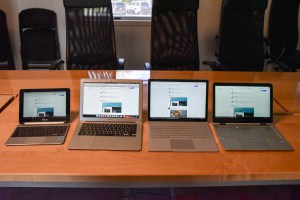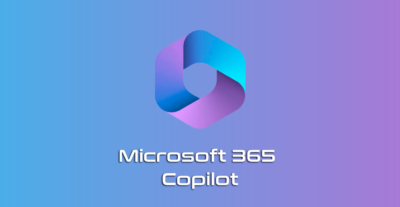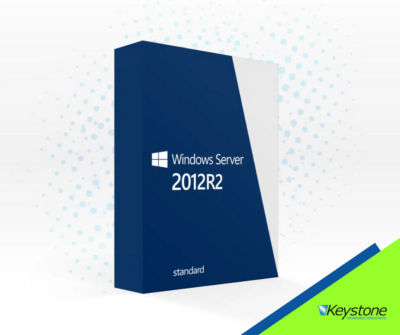Buying a laptop is a task you will probably do often in your life. You may need one for work and must operate within some corporate requirements for manufacturer or budgets, or purchase one for personal use or as a gift for a family member. It is important to have a good approach to selecting and buying a laptop to get the most value out of it. We cover some important aspects of this here.
First, it’s not so much the cost of the laptop, mostly these have become commodity items and they all look the same while sitting on the shelf. It’s the experience you have after you open it up and use it. The difference of a few hundred dollars will soon be forgotten if it is a great performer.
Where to Start when Buying a Laptop
The first thing you should consider is this is a device you will spend a lot of time using. And sometimes we forget this is a “PC”, which means “personal computer”. This means you are the primary and usually sole user of the laptop, and it needs to work for you personally, and your lifestyle and the things you need to do with it. Because of this we’re going to begin with what to consider before you even go to the store or the online site.
Considerations when Buying a Laptop
- First consider what is important to you within your lifestyle and needs. Here are things to think about.
- Portability – should the laptop be light and easy to carry because you move around a lot throughout the day?
- Battery life – will you be working for long time periods where it is not convenient to plug-in? If so focus on battery life, and understand that the manufacturer may specify the life of the battery in hours which is not realistic for your use. They may say it is a ten-hour battery life and you will find you only get seven.
- Power – here we are primarily thinking of the processing power of the CPU, and the memory. If you will use it for some high-end processing, such as video editing, CAD, database manipulation, then you may need a more powerful device. This may sacrifice portability or battery life aspects. Of all the items you may consider spending more, this is the one. A more powerful device may last you longer because it will keep up with future upgrades of the software.
- Disk space – this is somewhat inherent to power, but can be separated. You may not need a lot of processing power, but need a lot of disk space for images, or just a high volume of data. This may require you to use a traditional hard drive as opposed to a solid-state storage device, such as an SSD. An SSD is basically a disk using memory instead of spinning platters. It is much faster, quieter, and often better for battery life. But because of the expense is often smaller than a traditional drive.
Screen capabilities – you may like a higher resolution screen which looks better, but may affect the battery life. One of the biggest impacts to battery life is the number of pixels on the screen and brightness, so that if you have a bright, high resolution screen your battery life may suffer. - Touchscreen or Digitizer – for Windows-based systems, and some Google Chromebooks, a touchscreen is an option. Windows 10 is optimized for use with a touchscreen. It may seem odd to request this given the fact the screen is right there in front of you and you have a trackpad or mouse, but the ability to interact directly with information by touching it often helps us understand it better. A digitizer allows the use of a pen, one which will not cause stray marks from your palm because it rejects touch when the pen is in use. Higher end Windows laptops, especially those from Microsoft often include a pen built-in.
Size of the keyboard or screen – this will affect portability, but you may like a larger screen, or a numeric keypad. Once you’ve added these features you are usually at a 15 or 17-inch laptop which will have reduced portability, and higher weight. - Manufacturer support – this is more important than most people estimate. By this we primarily mean software driver support. One of the biggest issues you will have with a laptop is how well the hardware works with the software, primarily the operating system. If the power drivers are not well tuned, you may have various issues with the machine when it goes to sleep or tries to wake up. Or the trackpad may not offer smooth and effective performance, or the fan runs constantly. We suggest that you consider solid brand names and those that support their hardware with updated and effective software drivers. I have found this the greatest impact to my use of a laptop.
- Peripherals – many peripherals work over USB, or wirelessly. The most important aspect we are looking at here is first are the ports necessary on the laptop you are considering? Does it have a full-size HDMI connection if that is important to you? Second, does the laptop support a docking station? If you need to go to your desk and quickly lock in and have access to a full screen monitor, keyboard, etc. then you will want to have the ability for a docking station to be easily connected.
- Cost – this is the last consideration. A well-chosen laptop will probably last you for about 3 to 4 years. Even if you paid $2000 instead of $500, we are only talking about $20 a month’s difference for something you may use well over 100 hours a month. Unless necessary, make this the lowest priority on your list.
How to Use the Considerations when Buying a Laptop
So how do you put all those considerations above into practical use? First, rank them per your specific needs. You may have to trade certain things for others. Ideally, we could have a tiny device the size of a cell phone that when pulled from the pocket, will unfold into this powerful high performance machine with the glorious screen, but that’s just not possible. This means if you would like a large screen you will sacrifice portability. If you want to have a high-resolution screen and a powerful CPU running at top speed all the time, you will likely sacrifice battery life.
For my personal purposes, I prefer excellent manufacturer support, battery life, and portability. Most of what I do these days is working in Microsoft office applications and having a few browser tabs open. If I were still doing high-end programming and database work I would like a more powerful device. This has led me to select brand-name devices that way at or under 3 pounds and which have at least 10 hours of battery life. But you may have a different outcome based on your considerations.
I often have multiple laptops I use because I have varying needs.
- An Apple MacBook Air – I love the hardware, size, and battery life. I could go almost a day and ½ on the battery by keeping the screen at a low brightness. It packs away, sleeps, and wakes up quickly as needed. I use this primarily for the office applications, and photo management and editing.
- A Microsoft Surface Book – I just added this a few weeks ago. I was using a Hewlett-Packard Spectre X360, but it seemed to have various issues including drivers. That’s not normal for HP but it caused me to look again. The Surface Book has some issues with drivers, but after about four weeks of regular and sometimes intense use, it has done well. I like that it weighs about 3½ pounds, has a pen, and the screen can detach to work like a tablet.
- An Asus ChromeBook Flip – a small, 10 inch laptop that flips over to be a tablet. This runs the Google Chrome OS so effectively it’s nothing more than a web browser. But Google recently included this device to run android applications on it also. I’ve been using it like this for about two months with mixed results. It is nice because it is small and light and the touchscreen is great for just sitting on the couch and browsing (though I still prefer the iPad for this).
What should you do next?
If it’s time for you to buy a laptop, perhaps one over the holidays as a gift, consider the aspects listed above and rate them based on what is important to you. Then head to the store and focus on those devices that will best meet your needs. Don’t let the Best Buy Geek talk you into something that you don’t need. Focus on what’s important to you.
If you are a corporate client of Keystone ask us for assistance in finding the right model for you. It’s part of the service our help desk provides, and it is invaluable to get something you will enjoy!




